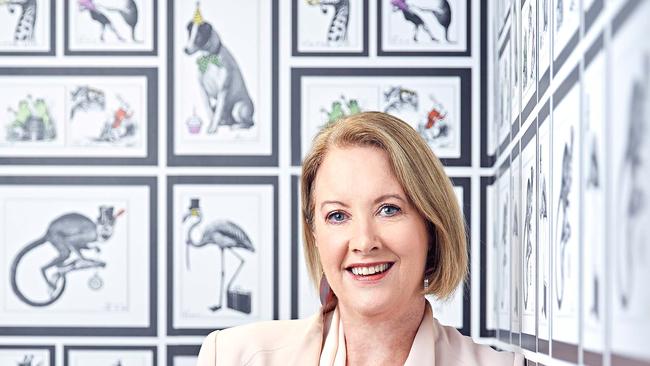Corporate leaders urged to analyse power in bid to fix gender bias
Despite big changes at work, women still miss out thanks to formal and informal power that gives ‘green lights’ to men

Extensive changes around women at work have failed to change C-suites and boardrooms, which are still dominated by white men, according to former sex discrimination commissioner Elizabeth Broderick.
“Even when I look at the women who have broken through, they are women like me – white women, middle to upper class, straight, able-bodied, cisgendered,” she says.
Introducing a roundtable run by the Champions of Change Coalition on a discussion paper about power and its impact on gender, Broderick says: “Change hasn’t elevated all women equally. This became more and more apparent to us, so that’s when we decided we have to lean into this discomfort and truly examine workplace power dynamics. And it’s not just us leaning in – there are many other stakeholders, so this discussion guide has been created with Aboriginal and Torres Strait Islander women, with ethnically and racially marginalised women, women with disability, women with a range of socio-economic backgrounds and women who identify as LGBTQI+. It’s about every one of us really interrogating how we attained power.”
The discussion paper released on Saturday is designed to “begin a national conversation about workplace power dynamics”. It identifies the “green lights” such as height, good looks and education that can help men and women move quickly up the ranks. The paper describes a variety of formal and informal powers – such as positional power, networking power, charismatic power – that are often unacknowledged by organisations trying to develop gender balance.
Broderick, who founded the coalition in 2010, says it has helped do a range of things – it has redefined the concept of merit which in the past was largely defined by men; it has addressed the inherent biases in pay and reward systems; it has disrupted the traditional organisational responses to sexual harassment in the workplace; and it has developed initiatives such as the panel pledge to promise not to sit on panels that are exclusively male.
“(But) we’ve started to understand that there’s a range of demographic and socio- economic factors that can elevate the career trajectory of some over others,” she says.
“For many and myself probably included, it was like, oh, yeah, you’re smart, you’re talented, you’re connected.”
Companies have to understand the green light pathway is not available to all, she says. The discussion paper is a resource to drive conversations about “how you obtain power, how others perceive your use of power and how you are empowering others; how to challenge systems, structures and cultures which preference certain individuals over others; and to understand the types of personal power used in the organisation and whether it facilitates or impedes gender equality”.
The paper argues the unequal distribution of power across genders reflects two factors: the long-tail impact of rigid gender stereotypes and social norms that position men as primary breadwinners and decision-makers and women as primary carers and emotional supporters; and the societal and organisational structures that provide men (particularly white, cisgender, able-bodied men) with advantages. This is sometimes described as privilege, and more pointedly as “white male privilege”.
Annika Freyer, the coalition’s chief executive, says: “Often we aren’t aware of the systems of power at play, especially if we’re actually benefiting from them. As leaders, we have the opportunity to shine a light and draw attention to these issues and to lead on change.”
THE PANEL
ANDREW COLVIN partner, Deloitte
ANDREW STEVENS non-executive director
ANGUS CAMPBELL Chief of Defence
ANN SHERRY, non-executive director
ANNIKA FREYER, chief executive, Champions of Change Coalition
BEVERLEY McGARVEY executive vice-president, Paramount ANZ
ELIZABETH BRODERICK, former sex discrimination commissioner
LEANNE HARWOOD managing director, JAPAC, IHG Hotels and Resorts
MARK DAVIES chief technology officer, Rio Tinto
PHIL ROWLAND CEO, CBRE Property HELEN LOFTHOUSE, CEO, ASX




To join the conversation, please log in. Don't have an account? Register
Join the conversation, you are commenting as Logout